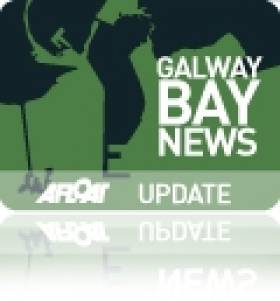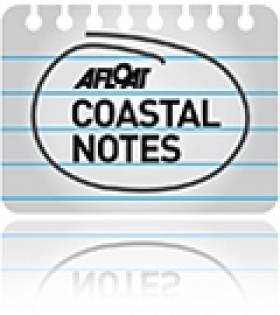Displaying items by tag: Statoil
Galway Port Plans Must Look To The Future Says Ex Statoil Head
#GalwayPort - A former director of Statoil has said Galway needs to look "10, 20 or 30 years ahead" to make use of the vast potential of the marine sector amid plans for the redevelopment of the city's port.
As the Galway City Tribune reports, Stein Bredal made a six-day visit to the City of the Tribes during which he proposed that proper management of the Galway Port scheme would create thousands of long-term jobs across a number of sectors.
He posited his home city of Stavanger in Norway as an example to follow. The city - with double the population of Galway - has become a service hub for Norway's west coast oil and gas fields.
And Bredal believes Galway could become the same for Ireland's offshore reserves, not to mention tourism (in the form of local hospitality and berths for cruise liners) and aquaculture (such as the proposed deep-sea organic salmon farm off the Aran Islands).
“You need someone in this city to think 10, 20, or 30 years ahead," he said. "You need to give hope to the young generation, that they don’t need to emigrate to Australia or New Zealand, that the service jobs can be located here."
As previously reported on Afloat.ie, fast-tracking of pans for the €200 million redevelopment of Galway Port is on the cards thanks to a clause in EU regulations that allows for planning applications to be made under IROPI (Imperative Reasons of Overriding Public Interest) legislation.
#COASTAL NOTES - The Norwegian people have “no idea of what’s being done in their name” at the Corrib Gas Field, a Scandinavian economist has told The Irish Times.
Bjørnar Nicolaisen was speaking on the role of Norwegian firm Statoil in the controversial project, following his visit with residents in North Mayo on the invitation of community mediation group Pobal Chill Chomáin.
The fisherman-turned-economist also echoed concerns regarding the impact on marine wildlife in the area by the seismic surveying currently being carried out on the gas field.
As previously reported on Afloat.ie, the Irish Whale and Dolphin Group (IWDG) has lodged a complaint with the European Commission and the Department of Energy, indicating that the department could be in breach of the EU habitats directive for licensing the seismic survey without providing adequate protection for aquatic wildlife in an area that is part of Ireland's coast-wide whale and dolphin sanctuary.
Calls have also come for a safety review of the project's infrastructure after Ireland's biggest earthquake in years struck just 23km from the Corrib field earlier this month.
Meanwhile, Statoil spokesman Bård Glad Pedersen told The Irish Times that the company believes “it is possible to conduct seismic surveys and develop oil and gas projects while protecting fisheries”.






























































